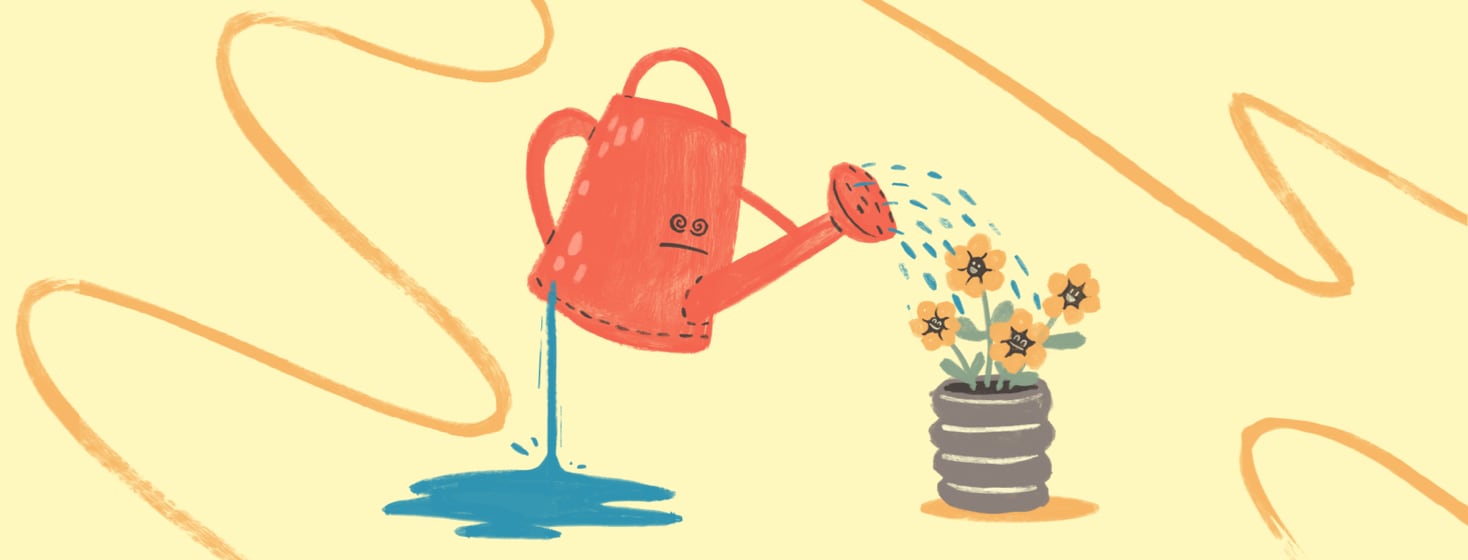Caregiving While Chronically Ill
I’ve been asked before: how do you have the mental and/or physical energy to care for others while you are dealing with your own issues? The answer isn’t a simple one. It’s complex, and often involves both the will and sheer fortitude to push past one’s own discomfort (which in and of itself isn’t always recommended). Frequently, caregiving while dealing with a chronic condition is a necessity— there’s just no way around it. More often than we’d like, it’s done out of duty and commitment, instead of love or interest.
Caregiving backups
As a mother or four, I’ve known many a day where I have to lay down my own challenges in order to care for those I am legally and morally bound to. I wish I could say that is a minority of the time, but honestly it’s definitely more of the majority. Some days, I am simply unable to be their caregiver, and I have to rely on my back-ups. I try to keep that to a minimum, not only because I want my back-ups to not resent me, but also because I want to make sure I save up their use for when they’re really needed. My back-ups are kind of like the special whisky that gets pulled out only at special times.
Although I’d love to have the financial ability to afford a stand-in on the afternoons I just need to sleep, or a live-in nanny to go outside with my kids when the pollen counts are high, that kind of life is mere fantasy. As a mother of four, I’ve been forced to get creative as the years have passed and my health has been a roller coaster ride. I try to take advantage of the good days, and do my best to avoid over-extending myself. This isn’t always an option, depending on the circumstances, as kids are far from predictable!
Parenting priorities
Parenting, in these situations, is an act of duty and commitment (though some would say this is actually love in action, but let’s not get into the semantics of it!). Some months this looks like lots of screen time for everyone. Some months it looks like an epic summer vacation with core memories locked in. Some months it looks like lots of appointments for kids and mom to get some issues figured out. For this mom, lately, it looks like feeding therapy and conscientious grocery shopping for one kid; calling and emailing providers in the area to find services for my autistic daughter; and various specialist appointments for me. Some days, no matter how I feel, I just have to suck it up and do what’s needed for my kids to thrive. I don’t have a choice.
This is the case for many who are caregiving or living the sometimes-monotonous existence as a chronically ill individual: we keep going because we don’t have a choice. Of course this doesn’t mean that we don’t also provide care for another out of love or commitment— the two can mutually exist. The difficulty lies in when we are forced to ignore our own challenges or needs to prioritize another’s, and often this end in burnout or, as my family has found, living in a perpetual mode of almost-bare survival.
Caregiving is a skill
When it comes to friends in need or folks searching for an advocate, oftentimes we find the shoes are filled by those who are already balancing a lot of plates. Why is this? I have found, at least in my personal experience, that caregivers are made— they don’t just exist. Giving care in a generic sense can be done with little skill or experience. But caregiving? Thoughtful, helpful, life-giving caregiving? This is a skill mastered by those who have seen and been through hard times. As we go through these hard times, we latch onto the literal life-preservers thrown to us by veterans of our circumstances. We see and know and understand how those people have made a difference in our own life— perhaps in some of our darkest moments.
In many situations, it’s natural instinct to value our own self-preservation over helping others. In others, those instincts have shifted for unfortunate reasons, and the self-preservation instinct is all but non-existent. It’s imperative for our own well-being that we find the right balance for our situation. And this can vary by the season, and sometimes by the day!
Invariably, though, we see the ones who have been challenged much in this life, finding their way to advocate for others. They make it a point to empower others or engage with others facing similar challenges. I think what it boils down to is this: It’s often easier to step out and offer a helping hand when you know— truly— how much it means.

Join the conversation